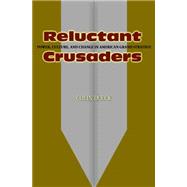
Note: Supplemental materials are not guaranteed with Rental or Used book purchases.
Purchase Benefits
What is included with this book?
| Acknowledgments | p. ix |
| Introduction: Change and Continuity in American Grand Strategy | p. 1 |
| Power, Culture, and Grand Strategy | p. 9 |
| Strategic Culture and Strategic Adjustment in the United States | p. 21 |
| The Lost Alliance: Ideas and Alternatives in American Grand Strategy, 1918-1921 | p. 44 |
| Conceiving Containment: Ideas and Alternatives in American Grand Strategy, 1945-1951 | p. 82 |
| Hegemony on the Cheap: Ideas and Alternatives in American Grand Strategy, 1992-2000 | p. 114 |
| Conclusion: The American Strategic Dilemma | p. 147 |
| Notes | p. 173 |
| Index | p. 215 |
| Table of Contents provided by Publisher. All Rights Reserved. |
The New copy of this book will include any supplemental materials advertised. Please check the title of the book to determine if it should include any access cards, study guides, lab manuals, CDs, etc.
The Used, Rental and eBook copies of this book are not guaranteed to include any supplemental materials. Typically, only the book itself is included. This is true even if the title states it includes any access cards, study guides, lab manuals, CDs, etc.